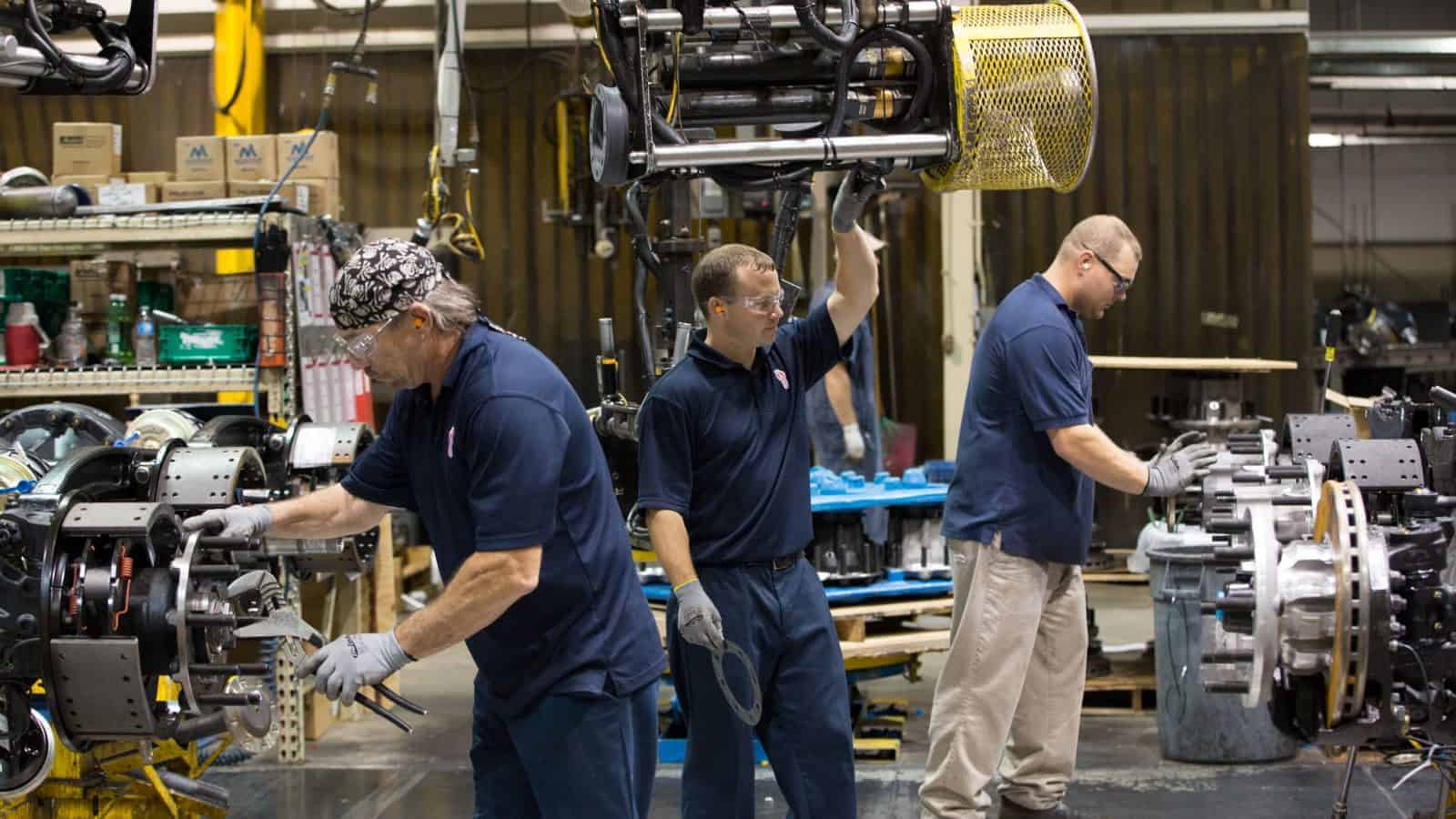Manufacturers Offer More Flexibility, Child Care to Workers

How can companies provide workers with the flexibility and support they seek? This question has become increasingly pressing for manufacturers as they compete in a tight labor market, and many have come up with their own innovative answers.
Recently, the Manufacturing Institute—the workforce development and education partner of the NAM—hosted a panel with leaders from Toyota, Cornerstone Building Brands, Pioneer Service Inc. and 3M about the child care benefits they offer and how they are reconceiving flexibility.
Child care: The companies provide a variety of different services to their team members, according to the speakers, to account for varying needs.
- Toyota offers a comprehensive suite of services that includes onsite child care at select locations, emergency backup care, tutoring and counseling services.
Flexible options: Though these manufacturers run complex operations, they are increasingly empowering workers to shape their own days. For example:
- At Cornerstone, office workers come into the office one day a week on the same day. Hourly workers are also offered flexibility—they can take part-time shifts in nonstandard times.
- 3M’s “Work Your Way” program is a trust-based system that allows nonproduction employees to designate the way they want to work, whether that’s in person, remote or hybrid. 3M is considering expanding the program to individuals working in laboratories and on the production floor.
- Pioneer emphasizes cross-training to increase flexibility for all their workers. By training more employees on critical skills, employees can take time off or work more flexible schedules because they now have coverage.
Where to start: For other manufacturers looking to provide similar options to their own workers, the panelists had some practical advice.
- When setting up a child care program, Toyota Vice President of Corporate Shared Services Denita Wilhoit says, “You need to consider three points. Find a good partner who knows the area. Investigate what resources may be available in the state where you’re implementing the program. Be aware of the risks.”
- “Outsourcing your needs is an important avenue. Creating a resource center is key. Listen and talk to your employees, and engage them through employee resource groups,” said Denise Rutherford, former chief corporate affairs officer and senior vice president at 3M (retired).
The big picture: Implementing programs and services like these will have huge payoffs, not only for individual workers and companies but also for the industry as a whole.
- In a recent study released by the MI, women cited the lack of flexibility (63.1%) and the lack of child care support (49.2%) as their top challenges, according to company leaders.
- Meanwhile, women currently make up only 29% of the manufacturing workforce. If the industry increased that share to 35%, manufacturers could fill the 746,000 job vacancies open today, according to the study.
The last word: Conversations around child care and flexibility signal seismic shifts in the way manufacturers develop and support their workforce. As Rutherford noted, “There is a transformation afoot.”
